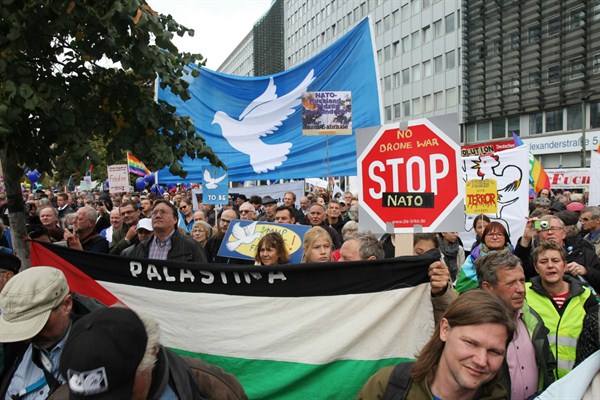Editor’s Note: This article is part of an ongoing WPR series about NATO members’ contributions to and relationships with the alliance.
In the debate over defense spending by NATO members, Germany has been singled out by U.S. President Donald Trump for alleged freeriding. Just days after Chancellor Angela Merkel visited the White House last month, Trump took to Twitter to accuse Germany of owing “vast sums of money to NATO & the United States.” In an email interview, Tobias Bunde, head of policy and analysis at the Munich Security Conference and a researcher at the Hertie School of Governance, describes Germany’s evolving relationship with NATO and how Trump’s comments have shaped domestic political debates about defense spending.
WPR: How have Germany’s defense spending and posture evolved in recent years, and what role have NATO alliance needs and commitments played in that?

